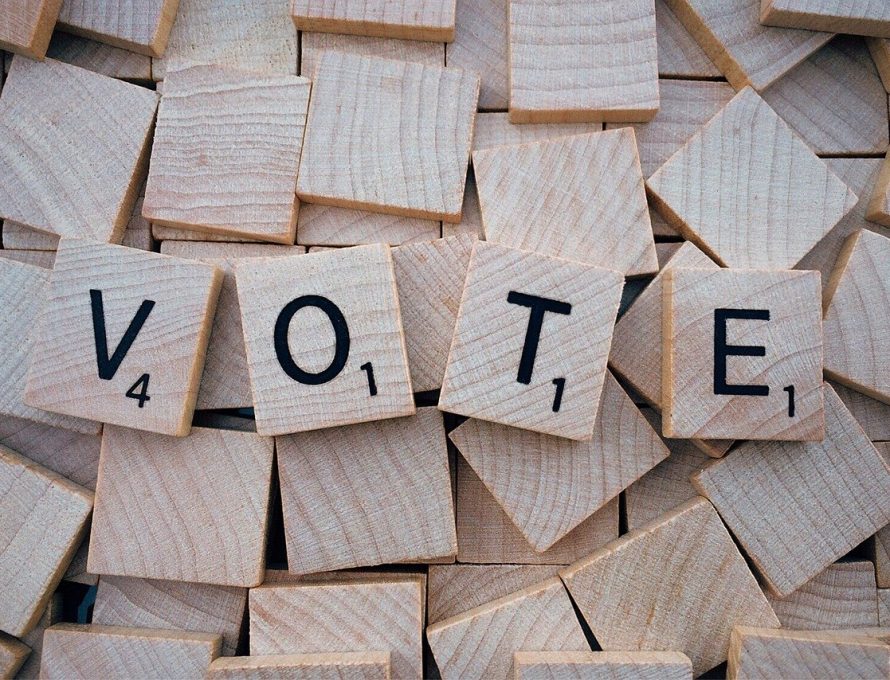WASHINGTON (Breakpoint.org) – In the 2016 election, only about 61 percent of voting-age Americans cast a ballot. The percentage of self-identifying Christians who voted, both evangelical and non-evangelical, was pretty similar. In other words, though faith does seem to greatly influence the voting decisions of American Christians who vote, it doesn’t seem to make much of a difference in whether or not American Christians vote.
Of course, if our faith should make a difference in every aspect of our lives (and it should), it should shape how we think about and live out citizenship, too. To put it bluntly, Christians have both a civic and a Christian responsibility to vote. As my friend Tim Goeglein, vice-president of external and governmental relations for Focus on the Family, put it recently, to vote is the beginning of our civic duty of Christians.
Why Christians should vote
Here are three reasons why:
First, voting is an act of obedience. Both Jesus and St. Paul described our responsibility to defer to the governing authorities and to “render to Caesar” what is due to Caesar. Both Jesus and Paul navigated the realities of the various political authorities they faced differently, depending on the nature of their political authority and their rights as citizens. For example, Jesus never went to Rome, but He often confronted Jewish political powers and structures. Paul claimed and appealed to Roman citizenship when he was arrested.
In our context, the people are the political authorities. We don’t submit to political authority; we grant political authority to the representatives we elect. So, in our context, voting is the most fundamental way there is to “render to Caesar what is Caesar’s.”
Second, Scripture describes sin not only as doing wrong, but also failing to do the good we can. Voting is an opportunity to do some good. Christians should see voting as an opportunity to steward what is good.
Finally, voting is a way to fulfill both what Jesus called the greatest commandment and “the second one like unto it.” To love God with all our heart, mind, soul, and strength means, to some degree, loving what God loves: justice, righteousness, and truth are all things that God loves, and they can be reflected in law and policy.
And, to love our neighbors as ourselves means more than person-to-person niceness. Voting in ways that will limit or end abortion is a way to love our preborn neighbors. Voting in ways that will uphold the family and stop sexual experimentation on children is a way to love kids. Voting for policies that provide real opportunities for the poor and needy is a way to love them.
How Christians should vote
Of course, fulfilling our civic and Christian duty involves not only voting, but voting in a right way. While I don’t think there’s just one right way to vote in every election, on every race, about every issue, there are certainly wrong decisions to be made.
Because voting between candidates, whether for President or for dog catcher, will always involve choosing between the better of imperfect options, the best we can do is make comparisons. First, we should compare their worldview, because that is the basis of both their personal character and their public policy.
A candidate’s worldview, by the way, is not the same as their professed faith. For too many candidates, faith is not only personal, it’s private. A candidate’s worldview, on the other hand, reveals those beliefs fundamental to how they will govern, specifically, what they think needs to be fixed and whose job they think it is to fix it.
Second, we should compare their company, because every candidate comes with others. In particular, every President comes with a few thousand others: appointees who run departments, advisors who offer counsel, and judicial nominees who will be on the bench for decades. And just about every candidate comes with a political party, which has its own set of rules and expectations not to mention a platform that party intends to advance.
Finally, we should compare candidates’ stated policies, because policy matters. Policies are based on ideas. Ideas have consequences. Bad policies built on bad ideas have victims.
Of course, most Americans will not just choose who will be President. We won’t just be choosing between Congressional candidates. Choosing on ballot initiatives is every bit as important is choosing between candidates. In Colorado, we’ll be choosing whether to end the over 200 later-term abortions that occur in this state every year.
Finally, while it is critical and necessary, Christian involvement in the public square cannot stop at voting. The issues we face, such as abortion, assisted suicide, religious freedom, loneliness, and so many others, cannot be solved by government alone. The Church has plenty of work to do upstream from politics, in communities and families, not to mention plenty of praying to do too.
Though our responsibilities certainly include more than voting, they certainly do not include less.

